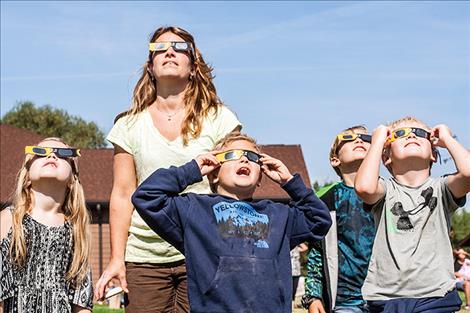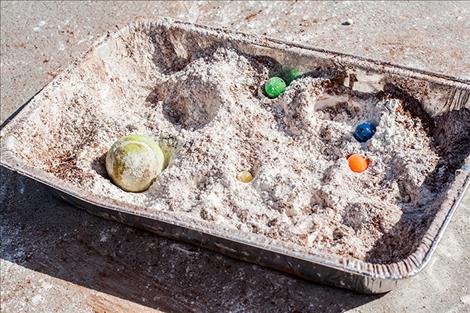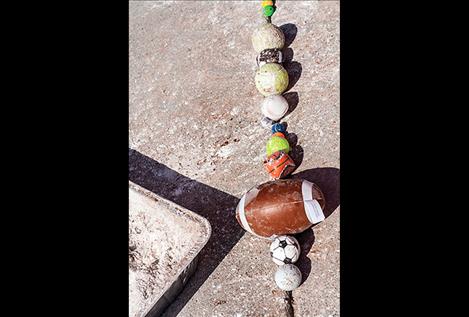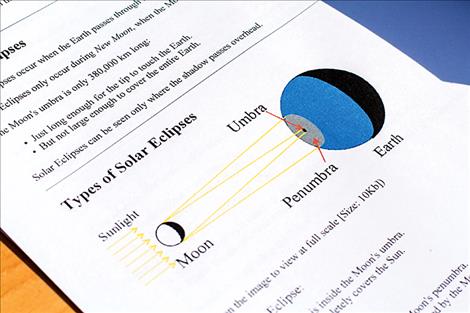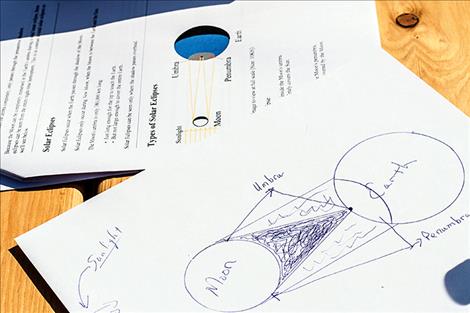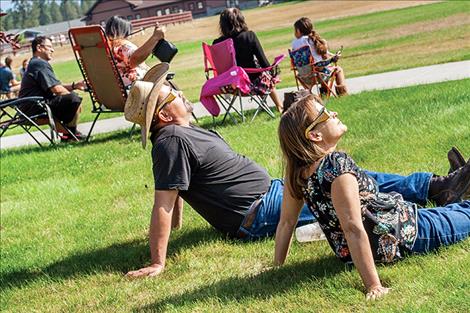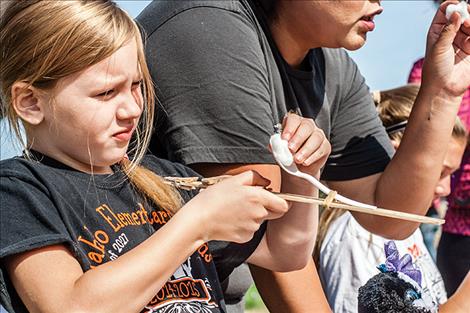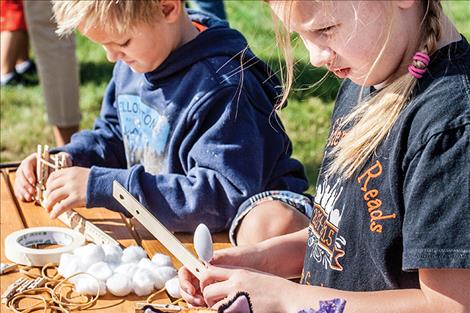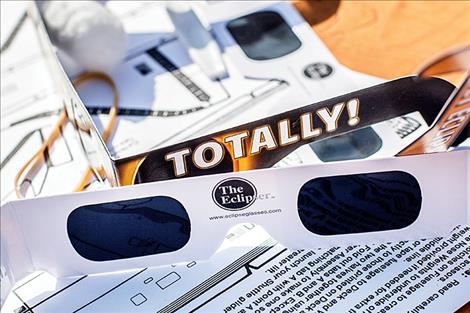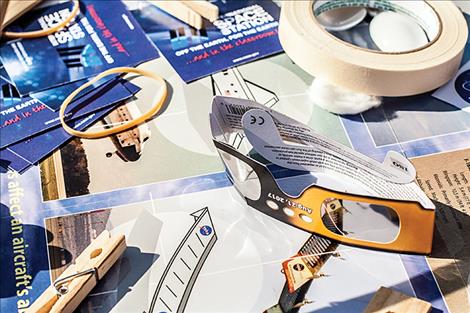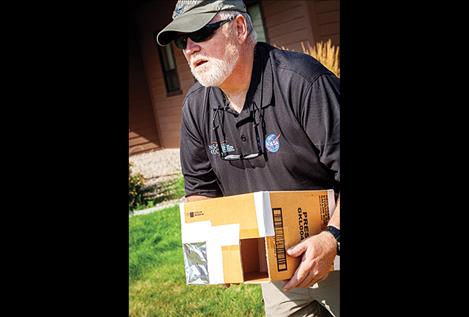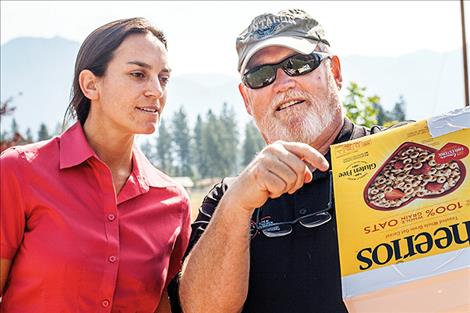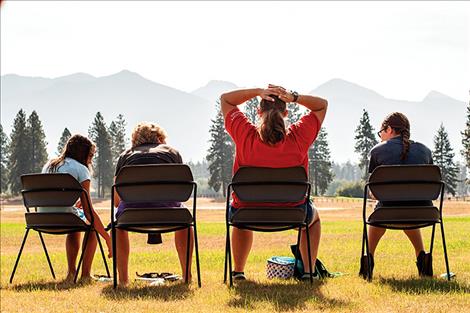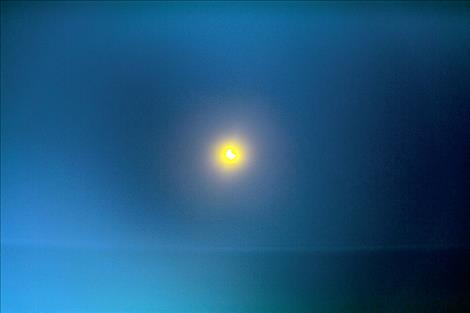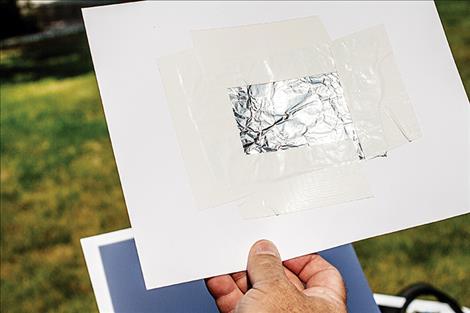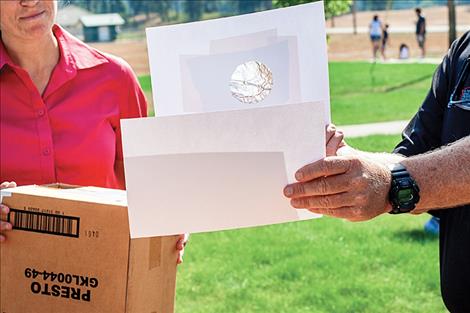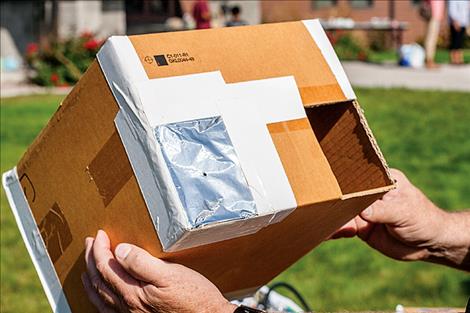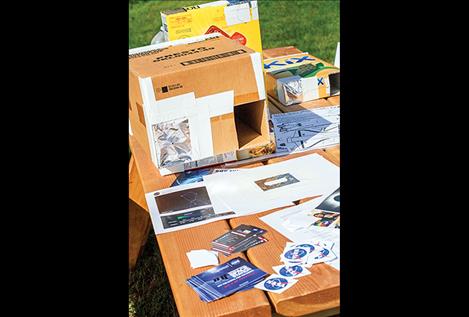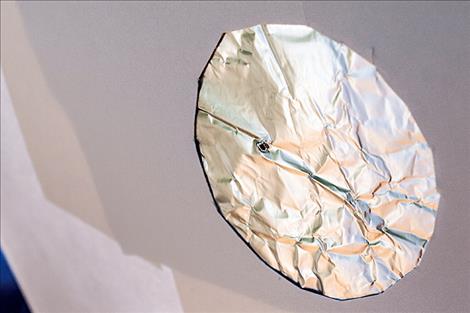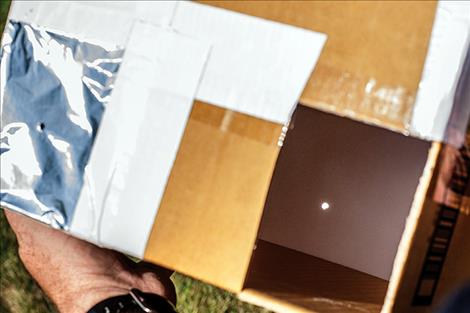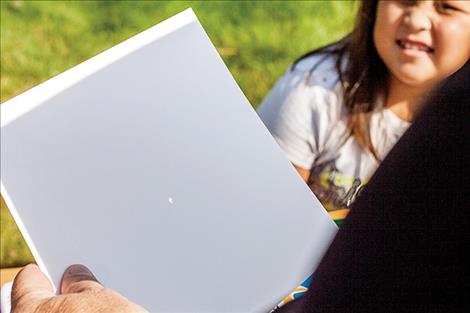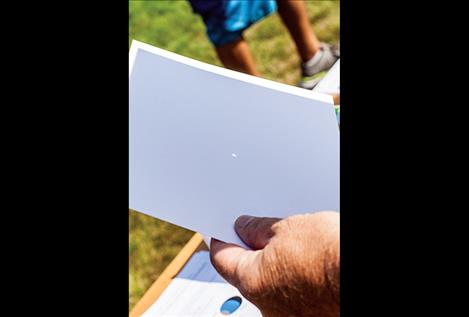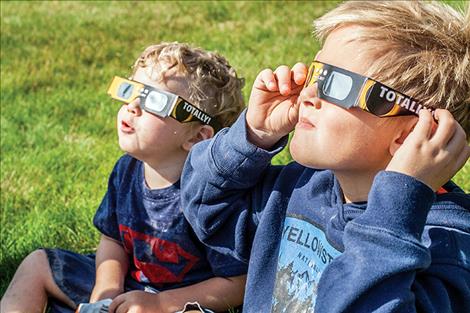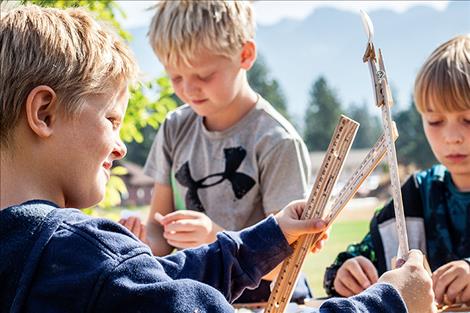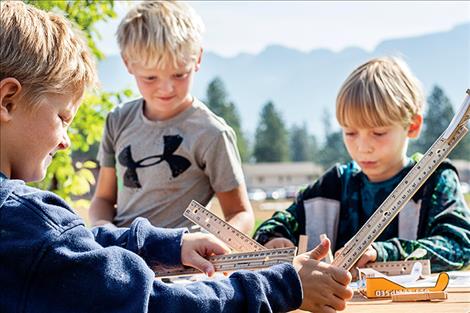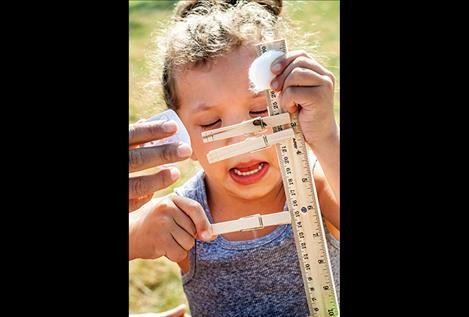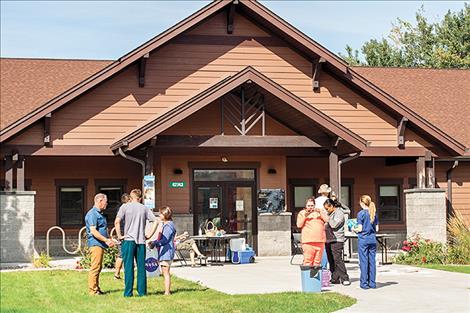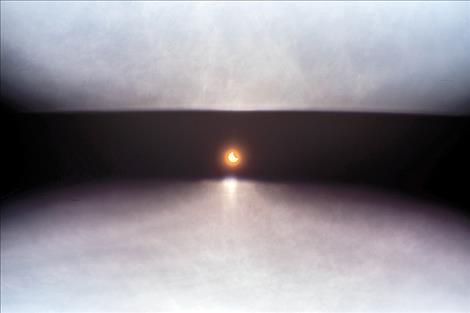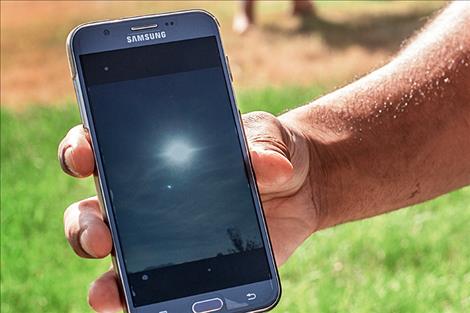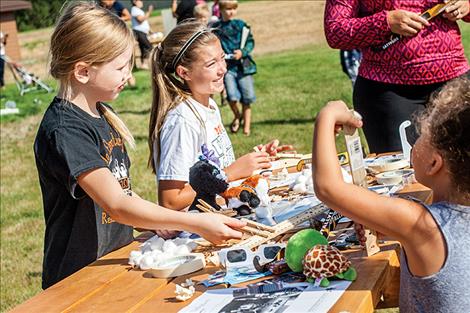Locals attend eclipse observing events
Hey savvy news reader! Thanks for choosing local.
You are now reading
1 of 3 free articles.
LAKE COUNTY – Eclipse viewing glasses sold out across Lake County during the weekend, but several venues provided free glasses and fun for the Monday, August 21, solar event including the Polson and Ronan libraries where people lined up to get a pair of glasses.
According to the National Aeronautics and Space Administration, the eclipse occurred due to a “special coincidence” as the moon and the sun crossed paths. “It has to do with when the lunar shadow sweeps across your location during the time when the sun is above the horizon,” NASA states.
Ann Marie Stone, Salish Kootenai College adjunct instructor, helped organize the public event at the Salish Kootenai College. She said that people in Polson saw the moon cover about 91 percent of the sun. “People that were further south would see more as they got closer to the path of totality,” she said. “We are really lucky that we were so close. We nearly had a full eclipse. There is rarely a path going across the United States, and I think that’s what really made people excited.”
At the Salish Kootenai College, people of all ages were invited to participate in several stations designed by SKC pre-service teachers including a meteor impact station showing how debris scatters, a classic eclipse pinhole camera station, an erosion table to show how atmospheric conditions impact erosion, an engineering station for projectiles, and a celestial rotation station to create visuals of the solar event with people and Styrofoam balls.
Funding for the project came from an educational grant from NASA. Several colleges received the grant funding to allow pre-service teachers to design STEM lessons for their classrooms. The teachers spent a week at the Ames Research Station in California to learn about designing projects for the eclipse. Stone said the teachers worked with dozens of people at the SKC event.
“We had families sitting out on the lawn and people viewing the eclipse,” she said. “It was a comfortable fun event with a great turnout to share this unique natural phenomenon.”















